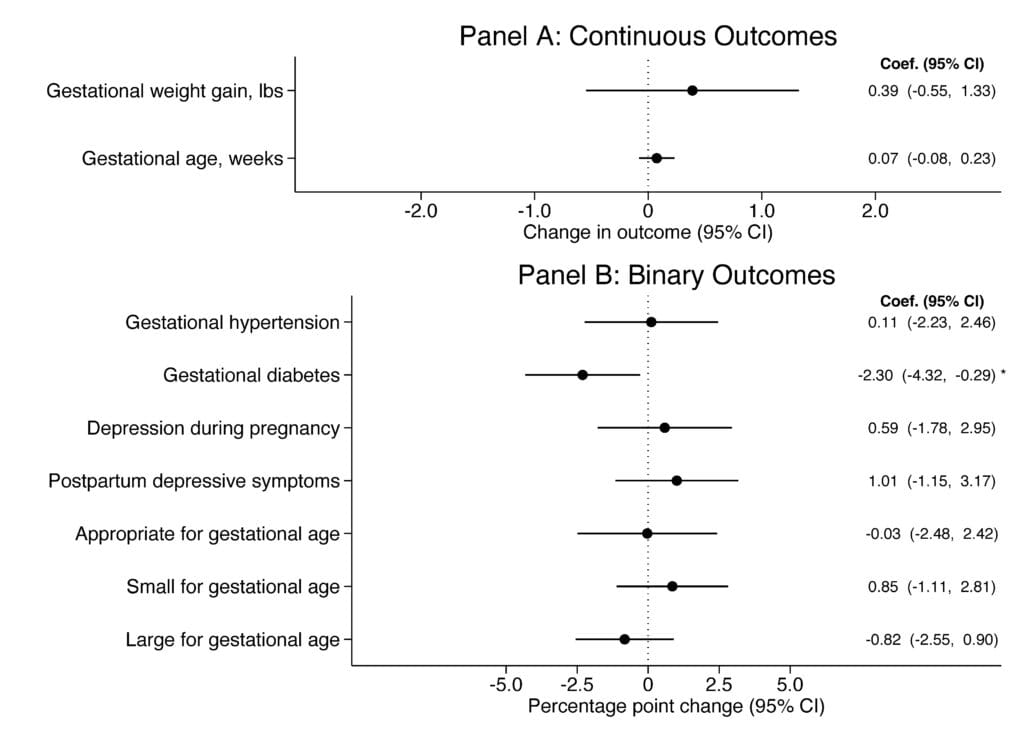COVID-19 Pandemic
The association between increased SNAP benefits during the COVID-19 pandemic and perinatal health: a quasi-experimental study Daniel Collin* Daniel Collin Kaitlyn Jackson Taylor Robinson Rita Hamad
Background: The COVID-19 pandemic created health and economic hardships for many families. Several existing safety net programs were modified to mitigate these hardships. One such program, the Supplemental Nutrition Assistance Program (SNAP), underwent several modifications, including a 15% increase in monthly benefits in January 2021. These modifications have been linked with improved food and financial security and mental health. However, there is limited research on the impact of the SNAP modifications on the health of pregnant individuals and infants. The goal of this study was to examine the impact of the 15% SNAP benefit increase on perinatal health among SNAP-eligible individuals.
Methods: We used data from the 2019-2021 Pregnancy Risk Assessment Monitoring System (N = 27,736) and a difference-in-differences study design to examine the effect of the SNAP benefit increase. We compared eligible and non-eligible individuals before and after the 15% benefit increase. Parent outcomes included gestational hypertension, gestational diabetes, depressing during pregnancy, postpartum depressive symptoms, and gestational weight gain. Infant outcomes included gestational age and whether the infant’s birthweight was appropriate, small, or large for gestational age.
Results: The SNAP benefit increase was associated with decreased gestational diabetes risk (-2.3 percentage points, 95% CI: -4.32, -0.29) among eligible compared to non-eligible individuals. There was no association for other outcomes. Findings were robust to alternative model specifications.
Conclusions: Findings show that pandemic-era enhancements to SNAP led to improvements in gestational diabetes, perhaps due to increased food and financial security. Impacts on other outcomes may have been limited by co-occurring economic hardship or the limited size of the SNAP expansions.

